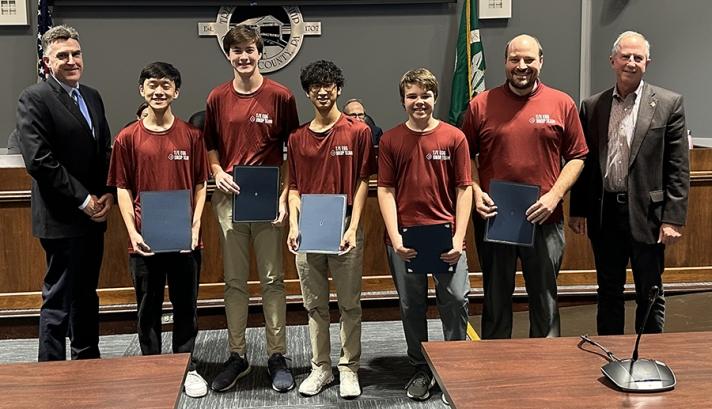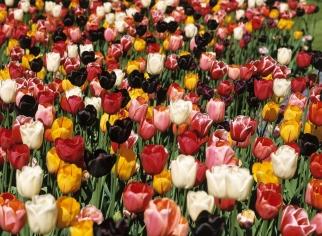




















TOWNSHIP MANAGER
William F. Martin
CHIEF OPERATING OFFICER
Joseph DiRocco, CPA
DIRECTOR OF PLANNING AND ZONING
Erin McPherson
TOWNSHIP ENGINEER
Stephen Burgo, P.E.
PUBLIC WORKS DIRECTOR
Darin Fitzgerald
PUBLIC INFORMATION SPECIALIST
Gabrielle Ignarri
DIRECTOR OF LIBRARIES
Mallory Hoffman
SUPERINTENDENT OF POLICE
T. Michael Beaty
TOWNSHIP SOLICITOR
Gawthrop Greenwood, PC
David Miller, Chair
Julie Gosse, Vice-chair
KS Bhaskar
Matt Holt
Sharon Humble
Carlotta Johnston-Pugh
Murph Wysocki
Arts Commission
Tredyffrin Township Building
Tredyffrin Township Police Department
Environmental Advisory Council
Historical Commission
Library Board of Trustees
Municipal Authority
Parks & Recreation Board
Pension Trustees
Planning Commission
Traffic Committee
Zoning Hearing Board
Patricia Hoffman, Editorial Assistant Edward Watton, Franklin Maps Sales & Graphics Manager The staff wishes to thank the many contributors for the content of each Tredyffrin Township newsletter.
Tredyffrin Township Public Works Department
Fire and Ambulance
Tredyffrin Township Libraries
Tredyffrin/Easttown School District
PLEASE NOTE: th During your participation in and attendance at Township events and activities like the Summer Concert Series, 4 of July Celebration, or Community Day, you may be filmed, videotaped, and/or photographed by Township Staff. Your attendance serves as permission for use of your image by the Township (for example: in newsletters or on the Township website).

7 PM
January 6* & 21**
February 18***
March 17
April 21
May 21****
June 16
July 21
August 18
September 15
October 6 & 20
November 5***** & 17
December 1 & 15
ENVIRONMENTAL ADVISORY COUNCIL HISTORICAL COMMISSION
7 PM
January 28
February 25
March 25
April 22
May 27
June 24
August 26
September 23
October 28
December 2
7 PM
January 9
February 13
March 13
April 10
June 12
July 10
September 11
October 9
November 13
December 11
7 PM - Tredyffrin Public Library
January 23
February 27**
March 27
April 24
May 22
June 26**
July 24
August 28
September 25
October 23
December 4
7 PM
14 April 8 July 8
May 8 ...continued...
July 9
September 10
October 8
November 12
7:30 AM
February 12
May 14
August 13
November 12
7 PM
January 16
February 20
March 20
April 17
May 15
June 18*
July 17
August 21
September 18
October 16
November 20
7 PM
January 23
February 27
March 27
April 24
May 22
June 26
July 24
August 28
September 25
October 23
November 19**
December 17**
New Year’s Day 2025 ...............Wed. Jan. 1
Martin Luther King Jr. Day.... Mon. Jan. 20
Presidents' Day .....................Mon. Feb. 17
Memorial Day .......................Mon. May 26
Juneteenth Independence Day
............................................Thurs. June 19
Independence Day .....................Fri. July 4
14 7 PM
December 18 *June 18: day later due to observance of Juneteenth
& RECREATION BOARD
8
12
12
9
14 June 11
COMMISSION TRAFFIC COMMITTEE
7:30 AM
March 19
June 18
September 17
December 17
Labor Day ..............................Mon. Sept. 1
Columbus Day/ Indigenous Peoples Day ......Mon. Oct. 13
Veterans' Day........................Tues. Nov. 11
Thanksgiving Day.................Thurs. Nov. 27
Day after Thanksgiving.............Fri. Nov. 28
Christmas Day .....................Thurs. Dec. 25
Day after Christmas..................Fri. Dec. 26
New Year’s Day 2026..............Thurs. Jan. 1

Using the Right Amount of Salt this Winter Winter has arrived again, and that means ice. Here are some good reminders and tips to battle the winter weather conditions:
Always use a shovel first, especially if the pavement temperature is 32°F or more. There's no need to waste money on deicers. Reserve deicers for ice, not snow Shovel as soon as possible so that wet, heavy snow doesn't have the opportunity to turn to ice.
Pro Tip: Consider getting a pavement thermometer to help determine pavement temperatures, which can vary widely depending on how much sun shines on your driveway.
All salt is not created equal. Read the labels! Be sure that you are getting the product you are paying for. Look for packaging that states the specific material you are getting. Pretty packaging can be used to sell lower quality deicers at a higher cost. There are a variety of deicers which perform differently at different temperature ranges. The most common and cheapest deicer is sodium chloride (“rock salt”), but below 15°F it's ineffective. Magnesium chloride and calcium chloride cost more, but you'll use less and they work in colder temperatures.
There are three aspects of snow clearing operation for the Public Works Department - brining (salt brine is applied by spraying it onto the pavement up to 72 hours in advance of a winter storm), salting (salt is most effective on busier roads when the temperature is above 18 degrees), and plowing. Generally, Public Works crews begin salting the roads when snow starts to fall. Plowing operations begin when snow starts accumulating to a couple of inches.
Each member of the plowing team services a particular route within the Township, and roads are prioritized based on traffic flow and emergency needs. Until snow fall stops, the first priority is to keep the main roads open and passable. As the snow fall stops, crews are then able to direct more attention to the side streets and less traveled roads. Cul-desacs are generally the last roads plowed as they have the lowest volume of traffic. When plowing is complete, a final application of material is spread on the roads, as needed, to provide traction and help prevent melted snow from freezing.
During plowing operations, occasionally mailboxes are damaged. This is usually not a result of the plow contacting the mailbox; the damage occurs due to the weight of the snow or slush. In the event your mailbox is

Measure your sidewalk and driveway so you know how much you need. A general guideline is 1-3 cups per 1,000 square feet. Save money by only using what is needed. If there are salt piles left over, you are using too much. Scoop up excess salt to use for the next storm. Consider how much you applied and how you can reduce it next time to avoid over-applying again.
damaged due to plowing operations please contact the Public Works Department at 610-408-3620 or by email at publicworks@tredyffrin.org
The Township's policy in this regard is:
1) The Township will reimburse the property owner up to $100 for a mailbox they purchased (resident to provide receipt) or install a standard “box store” mailbox and post or repair the existing mailbox. In either case, the new mailbox must be installed as far back from the edge of the road as the Post Office
Avoid using salt and sand together as the salt will melt the ice and the sand will end up frozen beneath the surface once it refreezes. Choose one or the other. And if possible, try to remove the ice by hand to avoid using either sand or salt.
If you have a common icy area, consider making it a priority to remedy next summer so you won't need to deice in the future.
regulations permit to reduce the likelihood of a repeat occurrence.
2) Property owners must notify the Township within 21 days after the snow event in which the mailbox was damaged to receive the reimbursement or a new standard mailbox.
3) If a driver is aware that a mailbox was damaged or if a resident contacts the Township to report a damaged mailbox, the resident will be sent a copy of the policy within 24 hours.
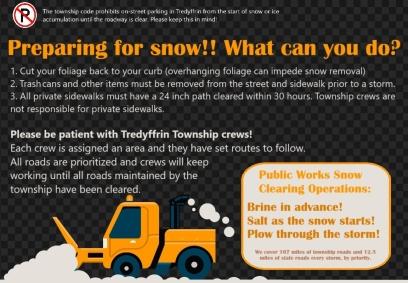
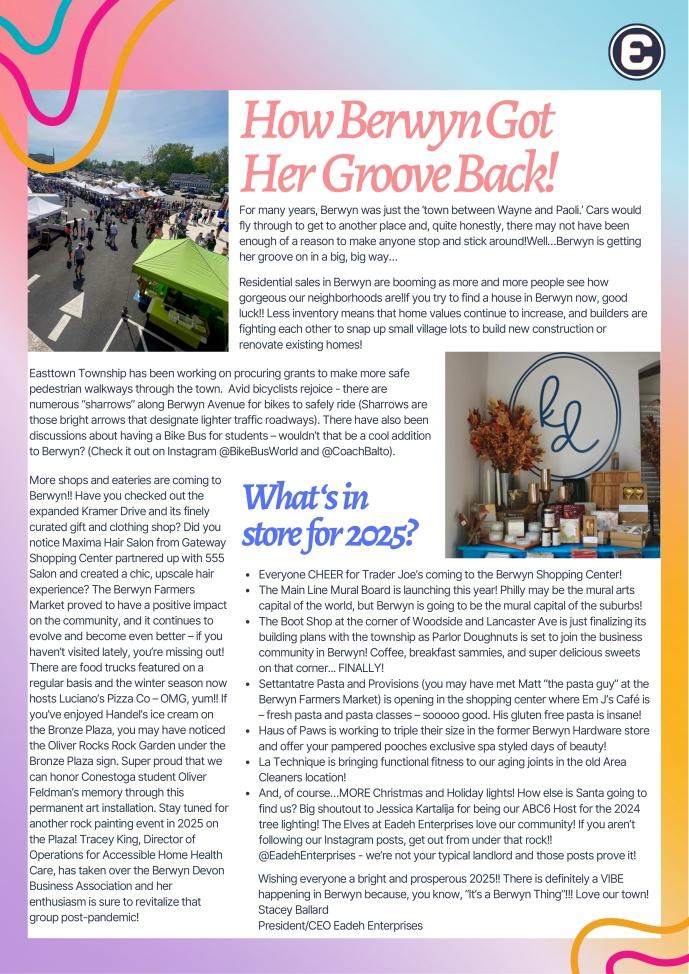
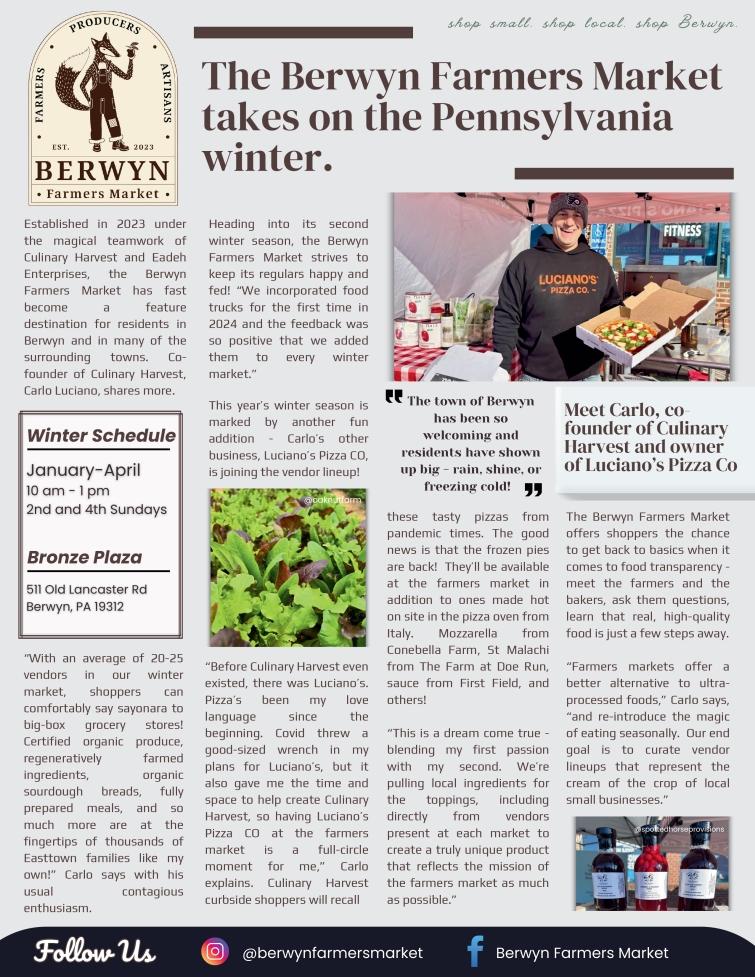














Gawthrop Greenwood, PC
Paoli Hospital - Main Line Health PECO
Penn Medicine Valley Forge Rubenstein Partners




Franklin
Remington
Riley Riper Hollin & Colagreco
Unruh Turner Burk & Frees
WSFS Bank



























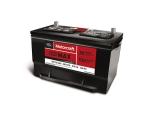







On November 9, 2024, the Tredyffrin Public Library hosted an open house to celebrate the ten-year anniversary of Mainline Zen Meditation. Zen Meditation is a popular weekly program led by Ying Studebaker. The group meets in person on the first Saturday of every month and on Zoom for the remaining Saturdays. In 2014, Mainline Zen Meditation set out to create a space for a practitioner-led group, which enables participants to lead their own mindfulness meditation spiritual journeys without a singular teacher. They explained, “This freedom allows each individual to explore their path lightly, discovering wisdom from a variety of sources while remaining rooted in community.”
The open house event included a mindfulness workshop for patrons of any level from those looking to get started to seasoned practitioners wanting to meet others in the community. It covered guided,
walking, and silent meditation and concluded with a Q&A session where participants shared their experiences. Over twenty people participated, including an attendee who traveled all the way from Baltimore to join the open house.
During warmer months at the group's library sessions, they practice walking meditation on the terrace, shaded by the magnificent ginkgo tree. The terrace floor is full of customized pavers that honor loved ones or commemorate special events, and the library gifted Mainline Zen Meditation a paver recognizing their ten years of practice. Now, their meeting place will forever boast their accomplishment, ready to greet the group during every walking meditation.

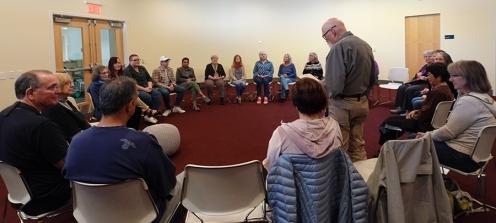

One member, who has been a part of Mainline Zen Meditation since its start, shared his gratitude for the library's collaboration. He noted, “We've built a space where old friends and new members alike gather in practice, some joining from the library in person and others from across the country virtually. No matter the distance, we come together in shared intention, week after week, on the path to mindfulness.”
Zen Meditation meets in person at the library on the first Saturday of every month at 10AM. On the remaining Saturdays, the group meets on Zoom at 9:45AM. Ying also runs another program, Relaxation and Healing Through Getting to Know Ourselves, every Wednesday at 8PM on Zoom. New members are always welcome. Find information about upcoming programs on our website at www.tredyffrinlibraries.org













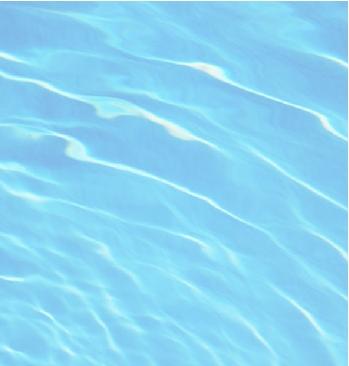
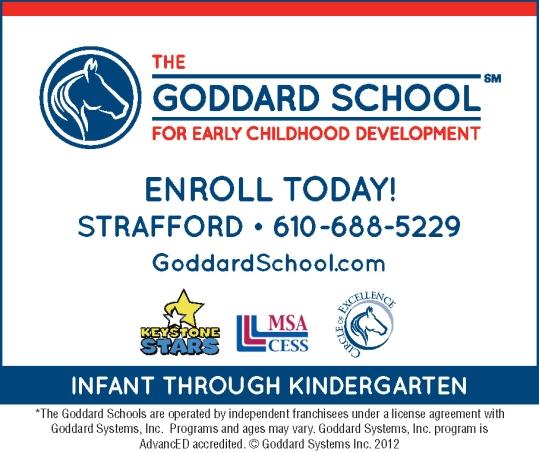




Throughout 2024, Township staff worked to update the Township's Solid Waste Ordinance, Chapter 168. At their October 21, 2024 Public Meeting, the Board of Supervisors held a public hearing and the changes that were made to Chapter 168 were approved and went into effect on November 22, 2024. In the Fall 2024 Township newsletter, an article was published informing readers of the Township's recycling requirements. This article will serve as an update to the previously published article, noting some of the changes to the Solid Waste Ordinance. To review the full Solid Waste Ordinance and a full overview of the Township's recycling requirements, visit https://ecode360.com/7113966.
The Township is mandated by Pennsylvania State Act 101 to recycle. All persons in the Township must contract with an approved collector for the separate curbside or similar collection of municipal waste, recyclable materials & leaf waste.
Except as otherwise provided herein, all persons owning or occupying single-family residential establishments shall separate all recyclable materials from municipal waste. Recyclable materials shall be placed in recycling containers and the recycling containers placed curbside or in another designated location for collection by an approved collector. Separate collection of recyclable materials shall be arranged with an approved collector by the owner or occupants of each single-family residential establishment. Owners or occupants of each single-family residential establishment and the approved collector shall establish a collection frequency that shall occur no less than once every other week.
Owners, landlords, or agents of owners or landlords of a multifamily residential establishment must establish a system for source-separation, collection, transportation, and recycling of the recyclable materials generated at multifamily residential establishments. The system must include an appropriate number of labeled recycling containers at easily accessible locations to accommodate the amount of recyclable materials generated at each multifamily residential establishment. The system must also include written instructions to the residents of multifamily residential establishments to inform them of the requirement to recycle and the use and availability of the collection program. The Township reserves the right to require additional recycling containers if the Township deems there is insufficient recycling containers to serve residents. Separate collection of recyclable material
shall be arranged by the owner, landlord, or agent of an owner or landlord of a multifamily residential establishment and the approved collector, but shall occur no less than once every other week. More frequent collection recyclable materials may be necessary to prevent recycling containers from being overfilled and cause materials to be blown about or littered on Township streets and private property.
Owners, landlords, or agents of owners or landlords of a commercial, institutional, or municipal establishment must establish a system for source-separation, collection, transportation, and recycling of recyclable materials generated at each building. The system must include an appropriate number of labeled recycling containers at easily accessible locations to accommodate the amount of recyclable materials generated at each building. It must also include written instructions to the tenants or occupants of commercial, institutional, and municipal establishments to inform them of the requirement to recycle and the use and availability of the collection program. The Township reserves the right to require additional recycling containers if the Township deems there is insufficient containers to serve occupants or tenants. Separate collection of recyclable material shall be arranged by the owner, landlord, or agent of an owner or landlord of a commercial, institutional, or municipal establishment and the approved collector, but shall occur no less than once every other week. More frequent collection of recyclable materials may be necessary to prevent recycling containers from being overfilled and cause materials to be blown about or littered on Township streets and private property.
Recycling Organizers of community events must provide for the separation, storage, and collection of aluminum, plastic, glass, corrugated cardboard, high-grade office paper, and leaf waste at the events. Community activities required to recycle include events sponsored in whole or in part by a municipality or held within a municipality and sponsored privately

Events include fairs, bazaars, picnics, or sporting events that will be attended by more than 200 or more people each day of the event.
The organizers or sponsors of a community activity must establish a system for source separation, collection, transportation, and recycling of aluminum, plastic, glass, corrugated cardboard, high-grade office paper, and leaf waste. Arrangements for the source separation and collection of these materials shall be the responsibility of the organizers or sponsors.
The organizers or sponsors of a community activity must establish a collection system that includes an appropriate number of recycling containers at easily accessible locations to accommodate the amount of recyclable materials generated. Community activity organizers and sponsors must provide signage and/or labels on recycling containers to indicate what recyclable materials are to be source-separated by event participants.
Organizers or sponsors must contract with an approved collector for the collection of recyclable materials.
Organizers or sponsors of a community activity must provide a written report to the Township that lists the name of the community activity, the approved collector collecting recyclable materials, the total quantity of each recyclable material collected, and the name and affiliation of the person submitting the report. Reports are to be submitted to the Township no later than 30 days upon the conclusion of the event.
Those materials specified by Tredyffrin Township for collection in accordance with this article and recycling regulations that may be promulgated from time to time for separation, collection, processing, and recovery as part of a recycling program. These materials may include aluminum containers, bi-metal containers, cardboard, glass, leaf waste, magazines, mixed paper, newspaper, high-grade office paper, and plastic.
The following is a list of materials that are required to be recycle within Tredyffrin Township:
Empty beverage and food containers, trays and plates comprised of 100% aluminum
Rinse to prevent bugs
Crush to save space
Empty food or beverage container made of steel with a thin plating of tin over the steel
Rinse to prevent bugs
Crush to save space
A structural paper material with an inner core shaped in rigid parallel furrows and ridges
Break down boxes to easily fit into recycling containers
Fit smaller boxes into larger boxes to keep neat at the curb
Glass
Empty bottles, jars, and food and beverage containers made of clear, blue, green, brown, or amber glass, excluding plate glass, window glass, automotive glass, porcelain, ceramic products, and glass ornaments
Empty and clean all bottles
Remove metal caps and rings from bottles
Labels can stay intact
NO light bulbs, window glass, mirrors, ceramics, Pyrex or dishes
Leaves, garden residues, shrubbery and tree trimmings and similar materials, but not including grass clippings
Must not be combined with municipal waste or recyclable materials; must be source-separated & stored in containers/bags until collection
Leaf waste shall be collected curbside or
at a similar location by an approved collector, separate from municipal waste and recyclable materials, at a frequency of no less than once per month
Additionally, in accordance with Act 101, Township leaf waste drop off site(s) shall be available to residents at a frequency of no less than once per month. The location(s) and hours of operation for the Township leaf waste drop of site(s) will be posted on the Township website and posted in an area of the Township building which is accessible to the public
Leaves and yard waste may also be utilized for compost, mulch, or other agriculture, horticulture, or landscaping purposes on the property where the leaf waste is generated.
or wish to not put leaves
Tredyffrin accepts leaves and yard waste at its compost center on Mill Road in the spring and fall, as well as the first Monday of the month during the winter months.
From January to September, the Mill Road Leaf Site is open the first Monday of every month. If the first Monday of the month falls on a holiday, the Township will post an alternate date that the site will be open. The Mill Road Leaf Site is open daily from October through December, Monday through Thursday and Saturday's (closed Fridays & holidays) from 7:30AM to 2:30PM.
A periodical publication containing a collection of articles, stories, photographs, illustrations, and other features usually bound with a paper cover and printed in one or more colors on glossy or chemically coated paper, excluding newsprint and all other paper or fiber materials
Tie in bundles or place in paper bags
Paper
Recyclable paper materials including paperboard/boxboard, junk mail, and other designated recyclable paper. Excludes cardboard containers, magazines, office paper, and newsprint
Paper distributed at fixed or stated intervals, usually daily or weekly, having printed thereon news and opinions and containing advertisements and other matters of public interest
Tie in bundles or place in paper bags
Any white printed or unprinted sheets of ledger, bond, writing, or other papers, including letter-writing stationary, note paper, computer paper, envelopes, and
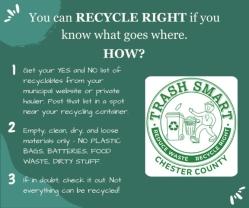
other general-purpose paper, including shredded paper
Empty and clean plastic containers that contained food, beverage, cleaning, laundry, and other household products Includes only rigid containers marked with a recycling symbol and a single number (i.e., 1, 2, 3, 4, 5, 6, or 7).
Examples include soda and water bottles, milk and water jugs, laundry soap containers, produce and other food containers, and soap bottles. Excludes expanded polystyrene containers
It shall be unlawful for any person to collect, remove and/or transport municipal waste, recyclable materials, and/or leaf waste within Tredyffrin Township without first registering with the Tredyffrin Township Manager. This includes contractors, companies, organizations, or other entities that perform landscaping or other yard services to persons in the Township and transport leaf waste off the property where it was generated. Exceptions are made for residents who directly deliver (self-haul) their municipal waste, recyclable materials and/or leaf waste to a disposal facility.
Persons may self-haul recyclable materials and leaf waste to a state-authorized recycling facility in lieu of contracting for curbside recyclable material and leaf waste collection services. Persons opting to selfhaul materials must receive prior approval from the Township to self-haul, retain receipts and/or weigh tickets that document the quantity of recyclable materials and leaf waste disposed, and submit annual reports to the Township documenting their name, address, quantities of each material selfhauled, name and address of facility where materials were self-hauled, and other information as required by the Township. Reports must be submitted within 30 days of the end of each calendar year for the previous year
Need more information? E-mail tredyffrin@tredyffrin.org or call 610-644-1400.
Since April 2022, the Environmental Advisory Council, with the help of resident volunteers, built 11 residential and 2 demonstration rain gardens, plus supplemented a garden already in existence at Wilson Farm Park. These projects were funded by a grant from PA Department of Environmental Protection Growing Greener program with the goals to:
Help capture and absorb stormwater on the property instead of it running unhindered into the stormwater drains.
Build a pollinator and bird-friendly attractive garden with a variety of native species suitable to wet environments to replace part of the lawn.
Educate residents about the importance of converting lawn into native plant gardens to help mitigate stormwater pollution of our local watersheds.
Various tolerance to wetness: the center of the garden will stay wet longer whereas the berm will dry out quickly.
Taller plants were chosen for the center and shorter plants for the perimeter to ensure a pleasing design.
Deer-resistance. Although the chosen plants were considered deer-resistant, only few are truly that. Many are “not preferred” but are still nibbled on by deer or rabbits. The best way to protect new plantings is through applying some form of deterrent, such as fencing the area or spraying with a natural deer repellent.
For the first 2 years, the gardens require supplemental watering to allow the plants to get established. Regular weeding is also necessary. Maintenance after that is minimal.

The average size of a residential rain garden was 250 sq. ft. and it was positioned where heaviest water runoff was reported by the homeowners, with sufficient exposure to sunlight and away from obstructions and underground facilities. Assessment tests were conducted to ensure appropriate drainage and gentle sloping of the site. After removing the sod, the area was leveled, supplemented with a mixture of compost and mulch, and planted with a total of 250 plugs of 10 different varieties of native plants.
Plants were selected based on parameters such as:
Locally native varieties exhibiting different flowering times throughout the growing season.
Ecological importance to pollinating insects, butterflies and birds.
Following is a map indicating the approximate locations of the completed rain gardens. You may have already passed one of the green lawn signs on your travels. To get a closer look, please stop by one of the demonstration rain gardens at Tredyffrin Library, Wilson Farm Park, or Chesterbook Boulevard (inset at Adams Drive).
If you are interested in installing a rain garden on your property and have questions or need help, please visit


A mature rain garden 2 years after planting showing late summer-blooming swamp rose mallow (Hibiscus moscheutos), black-eyed Susan (Rudbeckia fulgida), seedheads of beard tongue (Penstemon digitalis). Leaves of early blooming blue-flag iris (Iris versicolor) provide structure and interest throughout the season.
tredyffrin.org/boards/environmentaladvisory-council or email the EAC at tredyffrin@tredyffrin.org and put Environmental Advisory Council in the subject line. For detailed information, visit the Rain Garden Manual of New Jersey from Rutgers University at www.water.rutgers.edu. An extensive list of suitable trees, shrubs and perennials can be found at www.extension.psu.edu and type rain gardens - the plants, in the search bar.




BY RAYMOND C
In last year's Winter newsletter, we told you about the beginning of one of the Conservancy's largest-ever projects - the removal of the dam and small pond in the George Lorimer Preserve. Now we are happy to report its conclusion, thanks to excellent work by our contractors, the efforts of our community volunteers, generous funding by our grantors and project oversight by the Conservancy board. It's time for a recap.

Hopefully, readers were never at the site during heavy rainstorms of previous years - floods moved large rocks and created a fifteenfoot-deep ditch - a major hazard.
Last year, skilled operators and heavy equipment from contractor Flyway Excavating removed the dam, regraded and seeded the site with winter rye to create a stabilized stream channel.
The objective for 2024 was to create a habitat suitable for birds, and in particular birds in the Pennsylvania Wildlife Action Plan. The birding community in our area, including Valley Forge Audubon, Birdtown PA, and experts from neighboring land trusts, provided guidance for target species. The signature species of greatest conservation need was determined to be the wood thrush; related species that would favor similar habitat include Kentucky warbler, ovenbird and worm-eating warbler
In order to create the habitat that would favor these birds, we wanted to build a vegetative community rather than planting a collection of individual plants. A community is a group of plants that work together with numerous known and unknown

interrelated beneficial services above and below ground. This brings benefits such as nutrient transfers, structure, predator and prey food web relationships. We used the Pennsylvania Community Prediction Tool for Site Restoration to identify four communities which were compared with the Cornell Lab list of species-specific habitat and food sources to identify the most suitable community for wood thrush: a red maple-black gum Palustrine forest. Species
in that community include, in addition to the eponymous trees, other trees like oaks and dogwoods, shrubs like viburnums and winterberry, and various grasses, sedges and perennials.
The Conservancy has typically used tubes and cages that protect individual plants from deer browse, but here we specified perimeter fencing for the majority of the site as best suited to foster our desired community of plants and animals.
We then looked for professional partners to help implement our strategy and were fortunate to find restoration contractor Land Studies and fencing contractor ProFence willing to work with us to scope a project based on virtual assessments of the site. These estimates then formed the basis of grant applications.
The Conservancy is hugely grateful to the Marshall Reynolds Foundation, the generous funders of our transformative 2023 signage project, for continuing to support our ambitions. Together with the balance of the Valley Creek Trustee Council funding (saving largely due to
Board member Scott Bush's environmental engineering expertise), and supplemental funding (shared with the Tredyffrin Environmental Advisory Council), from Keep Pennsylvania Beautiful's Healing the Planet Grant Program with support from The GIANT Company.
Our first step was to engage our trail mowing stalwarts from Dave Ludwick Landscaping to mow the area. Then, two fenced deer exclosures (one of each side of the stream) were installed by an excellent ProFence team. The fence consists of 96 inches tall High Tensile Woven Wire, supported by 12 feet long posts, spaced


every 15 feet. Each exclosure includes an 8 foot gate for planting and maintenance access. Here is a photo of the team and some of their specialized equipment finishing up the project after a ten and a half hour day in 90 degree heat, with supervisor Lester and installation experts Wendell and Travis.
Many more elements had to come together before the planting, though. The experts at CJ Tree Service were called in to take down a dead walnut tree that threatened the new fence. Our friends at Weeds Inc. treated the regrowing grasses to reduce competition for the seeds to come. OLC Director and environmental wizard Margot Taylor worked intensively with the staff at Land Studies to pick the final plant and seed mix that balanced the target community with availability at suppliers Octoraro Native Plant Nursery and Ernst Seed. And delivery and planting schedules were coordinated with suppliers and volunteers.
Planting and seeding took place at the end of October and beginning of November, with Land Studies staff planting 130 trees inside the exclosure and a team of over 20 enthusiastic volunteers planting the 35 trees in cages around the perimeter of the exclosure. That enthusiasm was helped by the previous digging assistance provided by Land Studies auger! After weeks with no rain, the ground was indeed rock hard.
However, the work was not done! That rock hard ground and the subsequent weeks with no rain meant that it was crucial to water the plants, and here friends at Capri Landscaping came to the rescue with the 350 gallon tank on the back of their pickup truck, filled with water from the spring by the Conservancy office. Here's Carlos setting up an early morning watering.

The Conservancy could not be more grateful to the literally hundreds of people who came together and played a role in this project. We are so fortunate to be part of this wonderful community that cares so much for our precious open space






The Historical Commission has been quite busy the past year. The members engaged in a number of events with the surrounding community to bring the rich history of Tredyffrin Township to its residents. Here is a summary of the work the Commissioners have done.
Ernie Falcone - Neighborhood Walks
In September 2023, the Historic Commission sponsored a walk of the American Generals who stayed in existing homes outside the Valley Forge encampment. First home was the Thomas house where General Anthony Wayne quartered. Wayne hosted General Lafayette often. Wayne stayed here because the British knew of his Waynesborough home in Easttown. Across the street was General Kasimer Pulaski's compound. Pulaski was a veteran Polish cavalry officer. The barn was said to have provided the formation of the American Cavalry. Up the street was General James Potter, Governor of Pennsylvania, and frontier land developer. It is said that the American spy network was launched out of this home. Across his backyard is the home of General Enoch Poor, who headed up the New Hampshire and New York regiments. He was also head administrator in Valley Forge.
The Treyburn neighborhood in Wayne served as the site for the next tour in November 2023. The tour focused on the Joseph Thomas farmhouse that still stands on Pembroke Lane. The Thomas nursery became the breadbasket to Philadelphia, providing apples, peaches and pears as the
BY PEARL M. NUDY,
railroad was built. A species of black walnut was also invented there. The home served as a summer home for Quakers Strawbridge and Wanamaker. It was said that abolitionists Lucretia Mott also spent time there.
The next tour was in 2024 at Mount Zion Baptist Church in Devon. The tour told of 16 United States Colored Troops (USCT) buried in the graveyard. Also of note was the Ganges family buried there. The family grew one survivor from an African slave ship that was intercepted by American Frigate Ganges off the coast of Cuba. Brought to Philadelphia, 118 Africans were freed and put into indentured servitude, including one who later settled in Tredyffrin.
Finally, in the summer of 2024, The Baptist Church of the Great Valley hosted a walking tour of their graveyard. Reverend David Jones, Chaplain to George Washington is buried there, as well as Reverend Leonard Fletcher, leader of the Wilberforce AntiSlavery Society. The church was founded in 1701. The current church building was erected in 1805 and remains a vibrant congregation.
Work continues on “pop-up” descriptions to accompany the soon-to-be released interactive map of over 300 historic properties in our Township. The focus is on significant properties representing a cross section of Tredyffrin history. Historic eras include agriculture, Revolutionary War, churches, schools, westward expansion, among others.

The Pennsylvania Municipal Planning Education Institute (PMPEI) and the Chester County Planning Commission recently awarded the George Fasic Outstanding Planning Education Achievement Award to two of our Township's commissioners. Robert Williams and Eric Williams are both members of the Historical Commission. They both completed all four PMPEI core courses: Community Planning, Subdivision and Land Development Review, Zoning, and Zoning Administration. The Commonwealth of Pennsylvania has 2,650 municipalities, 73 of which lie in Chester County. Rob and Eric are two of only 63 individuals in the Commonwealth who have earned this recognition since it was first awarded in 2016. Among the firsts, they are the first in our Township to have earned the award, and the first members of a historic commission in the Commonwealth of Pennsylvania to receive this award. Presenting the award is Robert Emmanual, Middle Township Planner

The Township received two grant awards in 2022 and 2024 from the Pennsylvania Historical & Museum Commission (PHMC) totaling $30,000. Historic Commission Chair Rob Williams stated, “The state grants recognize the Township's past commitment to preserve, protect, and increase awareness of our unique cultural heritage. The funds will help our community build capacity to implement effective preservation programs into the future.” The first grant supported creation of a new Strategic Preservation Plan with recommendations spanning from public education to heritage site protection. The SPP was completed at the end of 2023 and is available on the Township website. The latest grant will be used in 2025 to review the Township's current preservation policies and strengthen our practices to sustain our town's important heritage sites and structures
The Historical Commission is starting work leading to “America 250” - the commemoration of the Declaration of Independence of 1776. Community events will span 2026-2028. We invite all interested persons to attend the monthly meetings and hope to inspire residents to become Board members or associate members of the Commission.
Everyone is welcome.









The Valley Forge Park Alliance has been awarded a National Park Foundation grant through the Open Outdoors for Kids program to illuminate the often overlooked African American narratives from the Revolutionary War. This initiative draws on Park-led research to engage the community, particularly students from Norristown Area School District, in a pilot curriculum program combining hands-on activities with immersive field trips at Valley Forge National Historical Park.
In collaboration with Dionne Patterson, founder of UGR3Day, the Valley Forge Park Alliance will create dynamic educational experiences. These experiences will include interactive sessions and, importantly, storytelling-focused excursions.
“I am deeply honored and excited to collaborate with the Valley Forge Park Alliance on this groundbreaking initiative to develop and share the rich African American history that is so vital to our nation's story. This partnership is an incredible opportunity to ensure that these important narratives are not only preserved but also brought to life for future generations. Together, we are creating a lasting impact that will educate, inspire, and empower communities across Pennsylvania,” said Patterson.

Over the next year, the program will connect 200 students with the African American experience at Valley Forge, deepening their understanding of its critical role in American history. Emphasizing accessibility and inclusion, this project is designed to foster a broader appreciation for our shared heritage, creating a strong emotional connection and fostering empathy among all participants.
“We are honored to receive this funding from the National Park Foundation,” said Molly Duffy, Executive Director of the Valley Forge


Park Alliance. “This grant enables us to highlight the contributions of African Americans at Valley Forge and inspire a new generation to engage with this important history.”
The National Park Foundation's Open Out Doors for Kids program ensures that all youth have access to national parks and opportunities to develop a lifelong connection to these treasured spaces. Through field trips, classroom activities, and educational engagements, the program nurtures children's sense of wonder and curiosity, bringing the history and beauty of national parks to life.
The grant will allow the Valley Forge Park Alliance to extend its outreach, particularly to underserved communities, ensuring that more students experience the park's unique historical and cultural significance.
For more information, please contact: molly@vfparkalliance.org.
The Valley Forge Park Alliance inspires appreciation for and citizen stewardship of Valley Forge National Historical Park. As the Park's philanthropic partner, the Alliance connects people to the Park through education, preservation, and celebration of its natural and historical resources. The Alliance enhances the visitor experience while protecting the Park's rich history for future generations.


7 lane 15-Yard with real life distances for your Handgun, Rifle, and Shotgun shooting practice.
New Shooter Lessons, Cleaning Classes, Utah Concealed Carry Permit, Tactical First Aid, Defensive Pistol, Home Defense Handgun, Reloading, RLEIA Handgun Qualification, Act 235, Shot Tec Simulator, Tactial Sporting Rifle, Women on Target, USCCA, Law Seminars
Guns, Ammunition, Cleaning Supplies, Holsters, Cases, Magazines, Reloading Supplies including PC Bullets & Better Bullets manufactured on-site, Silencers, NFA Items - Silencer Shop Kiosk!
Buy Guns—Buy-Sell-Trade Licensed by Federal, State, and Local Government Your Local Source Since 1994 · Deal with Us, Deal With Confidence




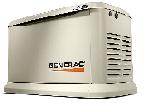



To and create a training account go to: https://destraining.chesco.org/p-11040-cg31.aspx REGISTER






Does the League of Women Voters (LWV) support one political party or candidate over another? During its over one-hundredyear history, the LWV has frequently been accused of being partisan. However, the League is a non-partisan, political organization. So, what's the difference between political and partisan.
You've heard that all decisions are political. Politics has to do with governing — be it our country, our state, our county, or municipality. It also has to do with how rules and laws are made to manage groups — be it in nations, companies, clubs, schools, or churches. Politics is a way in which individuals, or groups of individuals, obtain power and, in turn, use it to exert influence. The League supports openness and accountability in governance.
Partisanship, on the other hand, has to do with a strong attachment to a political party, its principles and/or agenda. Although many minor parties exist and support candidates, the major political parties are the Democratic and Republican. These groups are often associated with a negative view toward other parties that have a different viewpoint. Extreme partisanship can result in divisiveness and an unwillingness of leaders and officials to cooperate and compromise on important matters. Under
such circumstances, governing becomes difficult and perhaps impossible.
The League of Women Voters values its strong, non-partisan policy. It does not support or oppose any political party, candidate for elective office, office holder or any group that supports candidates. While some members may be active in party politics, the LWV leaders adopt its nonpartisan policy annually to maintain the organization's reputation as a trusted convener and source of information. The League encourages members to register voters, serve as poll workers, monitor election processes, and provide other resources to promote informed decisionmaking. However, members do not advocate for parties or people in these League-sponsored capacities.
How can the League be non-partisan and still advocate for issues like reproductive choice, gun safety, or immigration? Members do lobby and act on government matters and policies in the public interest that conform with positions at the national, state, and local levels. However, these positions are not knee-jerk reactions to a hot topic. These positions, on which the League stands, are developed through an extensive study, debate, consensus, and
adoption process by members. They are reviewed annually prior to each state or national convention and revised as needed. For example, positions on natural resources have evolved from concerns about conservation in the 1920s through the examination of flood control in the 1950s. In the 1970s, LWV built a strong, national basis for protecting and managing the interrelated aspects of air, water, land use, energy, and waste management. Since that time, the League has been involved in shaping legislation and advocating for the preservation of life-supporting ecosystems and public health at all levels of government. This advocacy has grown during the 2000s with an emphasis on climate action. LWV advocacy is issuesbased, NOT party - or candidate-based. The program and priorities of the League have shifted over time. However, the positions developed through the past century guide actions and provide a foundation to address issues without being swayed by partisan politics. The LWV is committed to helping to make democracy work. Membership is open to all.






Our own Chairman of the Board, David Miller, dives into Christmas as Scuba Santa at Adventure Aquarium's Christmas Underwater in December.
In November, the Board of Supervisors recognized Tory Snyder for her 22 years of service provided to the Township and its residents as a member of the Planning Commission, having led the Planning Commission as
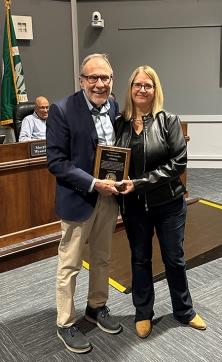
Chair and Vice-chair during her tenure; for her work as the Planning Commission liaison to the Environmental Advisory Council; as well as her service on various other Township initiatives.
At the November 18th Board of Supervisors meeting, Chair David Miller and Township Manager William Martin acknowledged by Proclamation Tredyffrin-Easttown School District students Matthew Ma, Charlie Gawthrop, Jeffrey Wang, Breckin Shefflerwood, and their advisor Derrick Wood for their achievement in breaking the Guinness World Record for the greatest height to drop a protected egg without breaking. The students from Conestoga High School and Valley Forge Middle School gathered on August 18th in an attempt to break the Record. The students designed a device to protect the egg, which was dropped by Mr. Wood from a height of 83 feet and the students did break the previous Record of a height of 54 feet.
